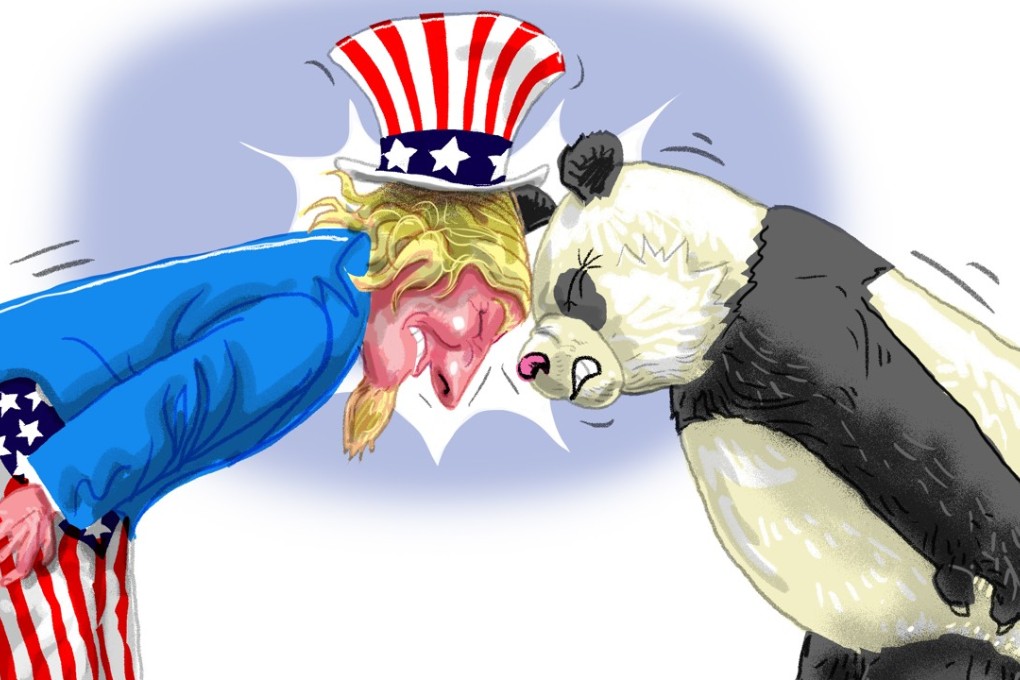It’s a long way from trade tariffs to war, but China and the US must act as grown-ups to steer relations
Tom Plate says fair play and mutual respect are missing in the China-US squabble over trade, and both sides must recognise that the relationship cannot be seen in purely monetary terms

Americans who worry about China’s fate do not do so carelessly. Their concern is sincere and well-informed. Suggestions and criticism are offered not as the sabotage of capitalist counter-revolutionaries but out of the shared instinct of global cosmopolitans. Why not give bilateral peace a chance? Or do we simply accept that the two great nations are “destined for war”, as a recent book title by a famous Harvard professor has it.
China to levy tariffs on US agricultural and steel products after US$60 billion Trump penalties
Trump and Professor Peter Navarro’s nest of trade hawks in the White House may not realise it, but the very concept of a trade deficit is a tricky calculation. Unlike, say, the Japanese, Americans spend far more than they save, and love being able to stuff loads of cheap toys made in China under the Christmas tree for the kids. Beijing has put billions of its hard-earned renminbi into US Treasury bonds and other such capitalist instruments. It’s not ready to short America – yet, anyway.
Steel overcapacity? The Chinese deserve recognition for substantially reducing it even in the face of social stress on the mainland. There’s not much coverage of this in the US media. Some editors seem uncomfortable with positive news from China.
We note that not only is China being targeted with tariffs, but so is Japan. One is a putative “competitor”, and the other a putative “ally”? They get the same back of the Trump hand. Why?
I can offer a backstory: in the 1990s, in the middle of the California recession, Washington criticised the Japanese for unfair trade practices with relentless rhetorical ferocity. And they were our strategic partner. Then president Bill Clinton called off the blame game after an appeal by then deputy Treasury secretary Lawrence Summers, a brilliant man. Clinton was said to have said something like: “You’re right. We have vital interests with the Japanese other than economic. Let’s calm it down.” And it was.